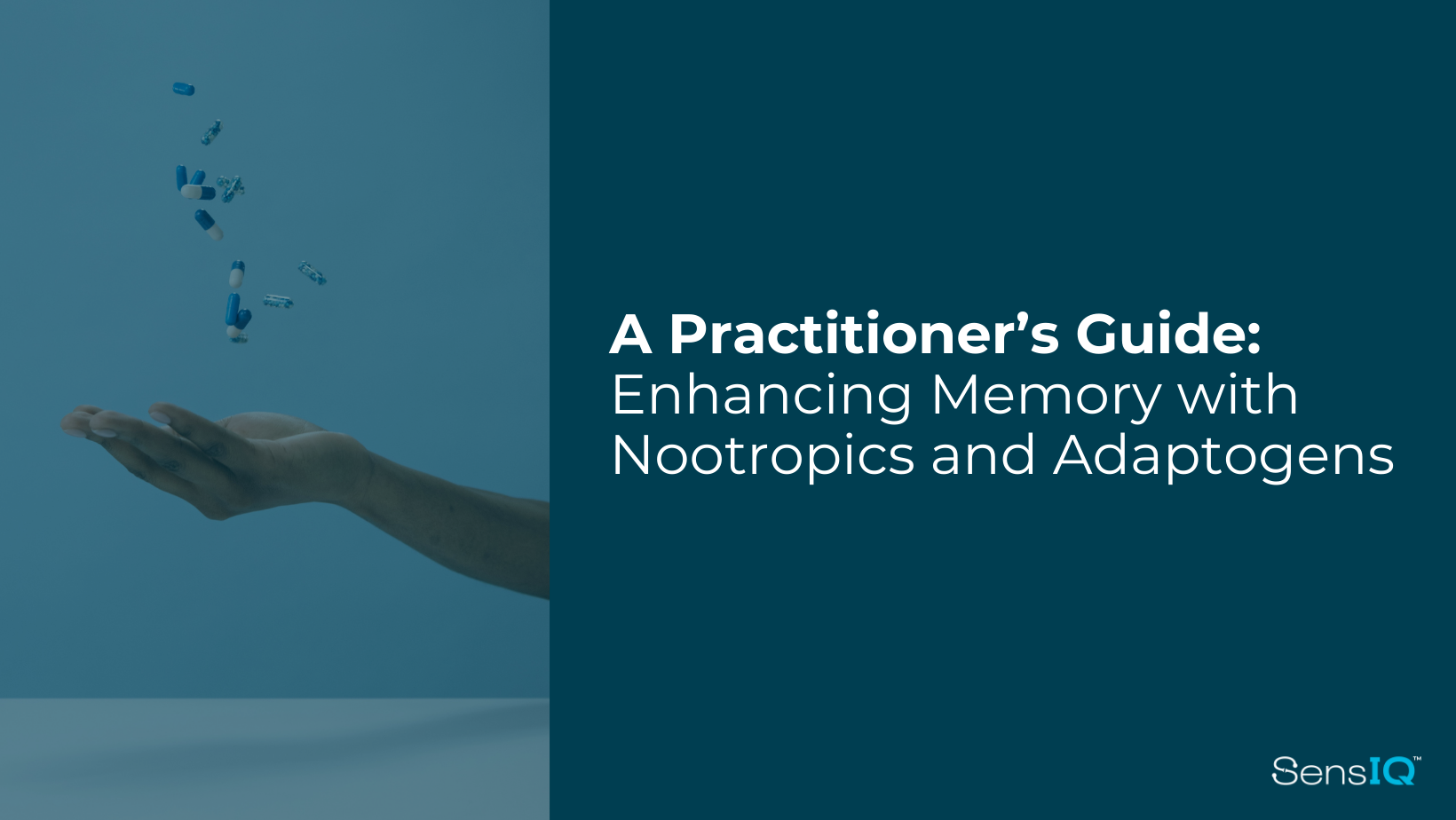A Practitioner’s Guide: Enhancing Memory with Nootropics and Adaptogens
As the quest for cognitive enhancement continues to evolve, healthcare professionals are increasingly exploring the potential of nootropics and adaptogens to support memory and overall cognitive health. These supplements, known for their neuroprotective and stress-resilience properties, offer promising avenues for enhancing mental performance in both clinical and everyday settings. By integrating nootropics and adaptogens into patient care, practitioners can leverage clinical insights to optimize cognitive function and memory support effectively. This guide aims to equip healthcare providers with the knowledge necessary to harness these powerful tools for improved patient outcomes, bridging the gap between clinical research and practical application.
Understanding Nootropics and Adaptogens
Distinguishing Nootropics from Adaptogens
Nootropics and adaptogens, though often mentioned together, serve different functions in cognitive health. Nootropics are substances that enhance cognitive functions such as memory, creativity, and motivation. They work by promoting better communication between neurons, enhancing brain cell health, and supporting the balance of neurotransmitters.
Adaptogens, on the other hand, primarily help the body manage stress. They support the body’s resilience to stressors by modulating the stress response. This can indirectly benefit cognitive health by reducing the negative impact of stress on brain function. “Adaptogens like Rhodiola Rosea have shown a capacity to improve resilience against mental fatigue, enhancing cognitive clarity under pressure” (Panossian & Wikman, 2009).
For healthcare practitioners, understanding these distinctions is crucial. This knowledge allows for the precise recommendation of these supplements, aligning their unique benefits with specific patient needs for optimal memory support and cognitive health.
Scientific Basis for Memory Support
Understanding the scientific basis for memory support through nootropics and adaptogens involves examining their underlying mechanisms. Nootropics enhance memory by improving synaptic plasticity, which is the brain’s ability to change and adapt as a result of experience. This process is crucial for learning and memory formation. Compounds such as Bacopa Monnieri have been shown to support synaptic function and integrity, contributing to improved memory retention and recall.
Adaptogens contribute to memory support by mitigating the effects of chronic stress, which can impair cognitive function. Stress hormones like cortisol can negatively affect the hippocampus, a brain region critical for memory. “Studies have indicated that Rhodiola Rosea not only aids in stress reduction but also helps maintain cognitive function during prolonged stress exposure” (Olsson, & Panossian, 2009).
Clinical insights into these effects can guide healthcare practitioners in integrating these supplements into patient care strategies, targeting cognitive health improvements through scientifically backed methods.
Integrating Supplements into Practice
Clinical Insights on Cognitive Health
Clinical insights are essential for effectively integrating nootropics and adaptogens into cognitive health practices. Research has demonstrated that these supplements can play a significant role in enhancing cognitive performance and resilience. Studies indicate that nootropics like Bacopa Monnieri can improve cognitive function in individuals seeking cognitive enhancement, suggesting their potential in routine applications.
Healthcare practitioners should leverage these insights to tailor interventions based on individual patient profiles. This includes understanding potential interactions with existing medications and considering the specific cognitive needs of each patient. Additionally, practitioners should remain informed about ongoing research and emerging data so that they can adapt their practices accordingly.
By staying abreast of clinical research, healthcare professionals can ensure the safe and effective application of these supplements, ultimately contributing to improved cognitive outcomes and overall patient well-being.
Practical Application Strategies
When integrating nootropics and adaptogens into patient care, practical application strategies are crucial for maximizing benefits. Begin by conducting a thorough patient assessment, including medical history, current medications, and specific cognitive concerns. This allows for personalized recommendations tailored to individual needs.
Start with well-researched supplements such as Bacopa Monnieri for memory enhancement or Rhodiola Rosea for stress reduction. Educate patients on the importance of consistent use and set realistic expectations about the timeframe for noticeable improvements, which can vary from a few weeks to several months.
Incorporate lifestyle modifications alongside supplementation. Encourage a balanced diet, regular physical activity, and adequate sleep, as these factors synergistically enhance cognitive health. Monitor patient progress through follow-up consultations, adjusting dosages or supplement choices based on observed effects and any reported side effects.
By employing these strategies, healthcare practitioners can effectively utilize nootropics and adaptogens to support cognitive health and improve patient outcomes.
SensIQ Memory: Supporting Cognitive Health Naturally
SensIQ Memory is a thoughtfully crafted blend of nootropics and adaptogens designed to support cognitive resilience and memory function. Formulated specifically for healthcare practitioners, SensIQ Memory provides a natural option to help manage stress, support memory retention, and enhance mental clarity—key benefits that align with research-backed practices in cognitive health. This targeted formula integrates seamlessly into patient care, offering a reliable solution for practitioners seeking to optimize memory support and cognitive wellness.
References:
- Olsson, E., & Panossian, A. (2009). A randomised double-blind placebo-controlled parallel-group study of the standardized extract SHR-5 of the roots of Rhodiola rosea in the treatment of subjects with stress-related fatigue. Planta Medica, 75(2), 105-112. https://www.thieme-connect.com/products/ejournals/html/10.1055/s-0028-1088346
- Panossian, A., & Wikman, G. (2009). Evidence-based efficacy of adaptogens in fatigue, and stress. Phytomedicine, 16(6-7), 491-497. https://doi.org/10.1016/j.phymed.2009.04.001

